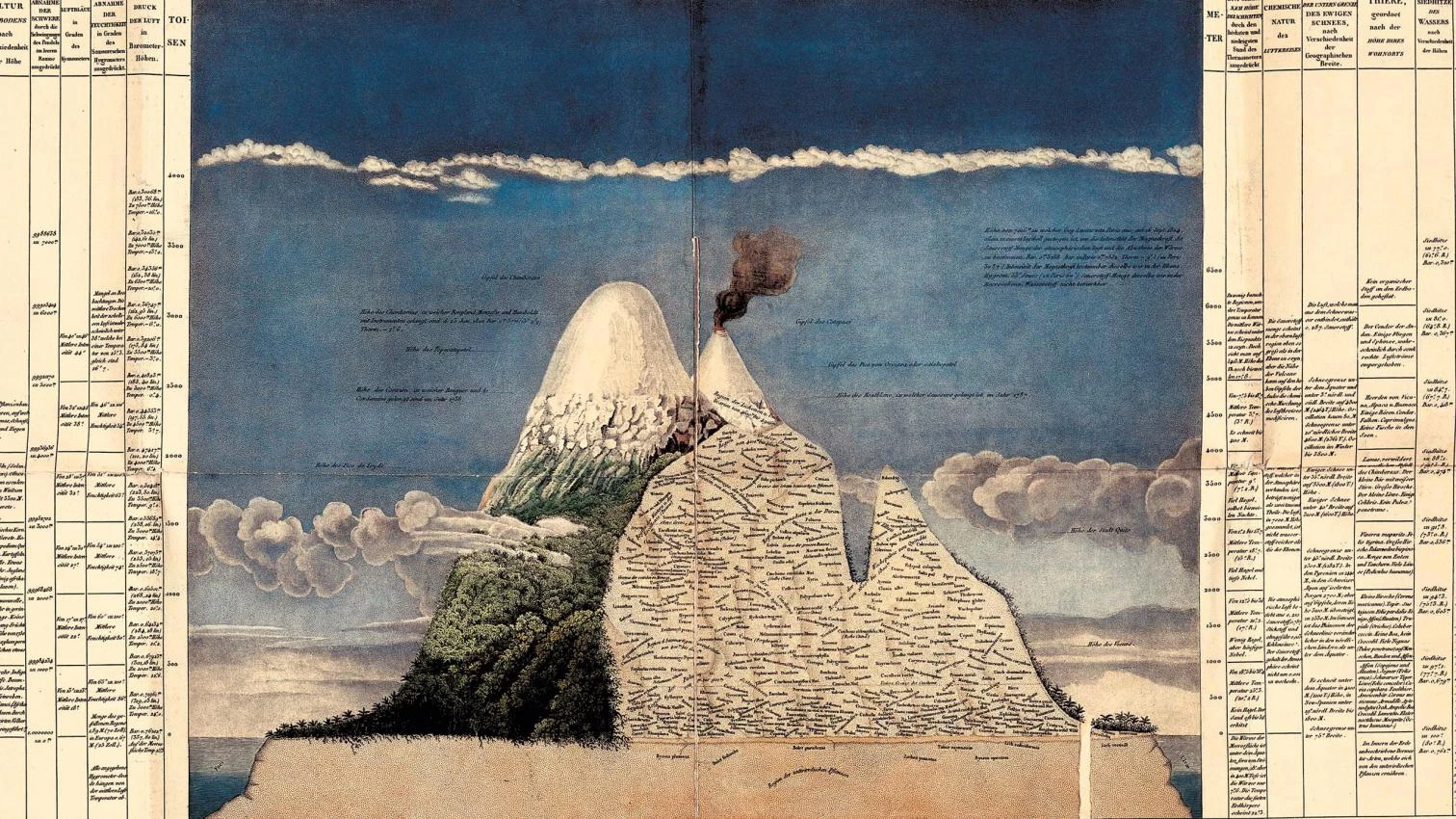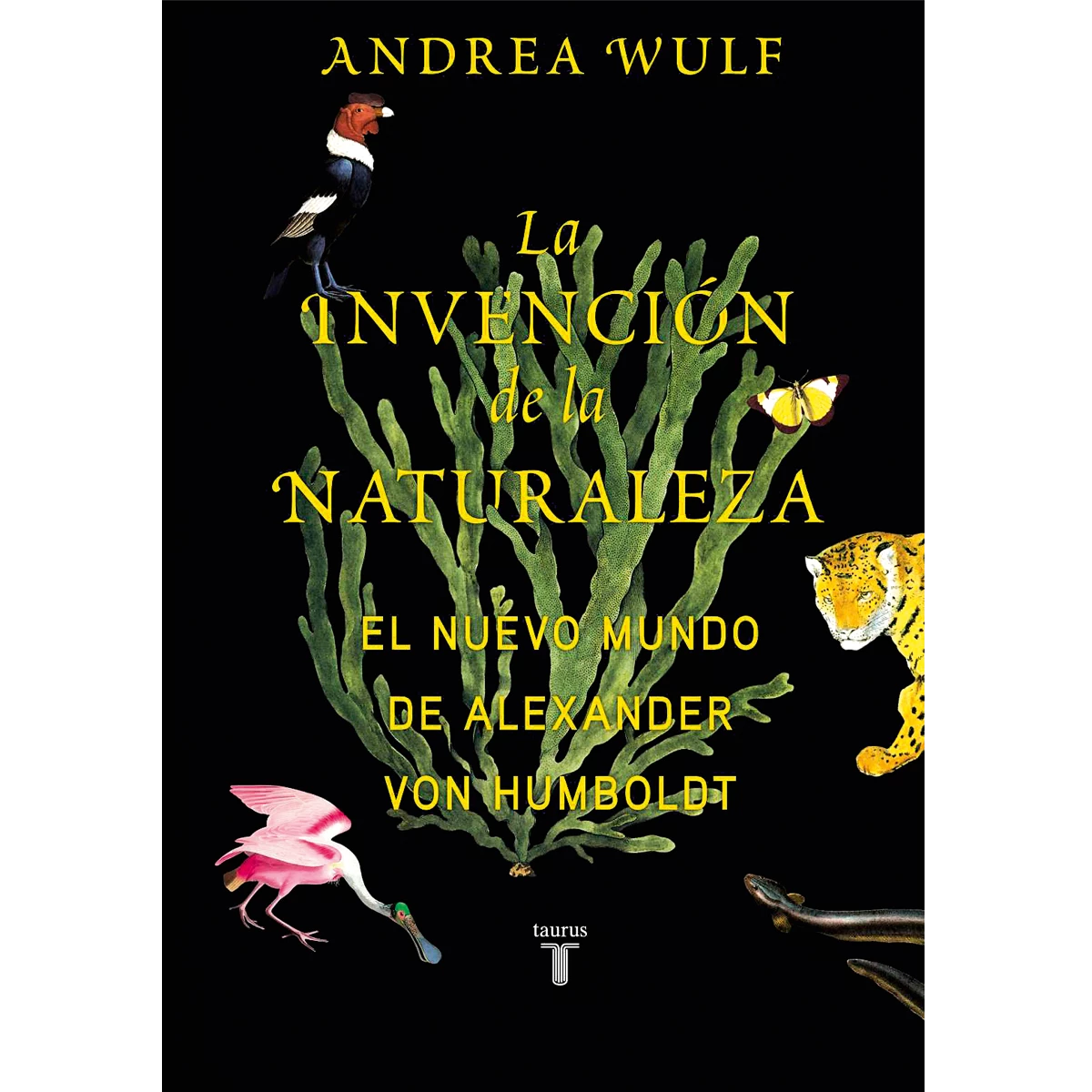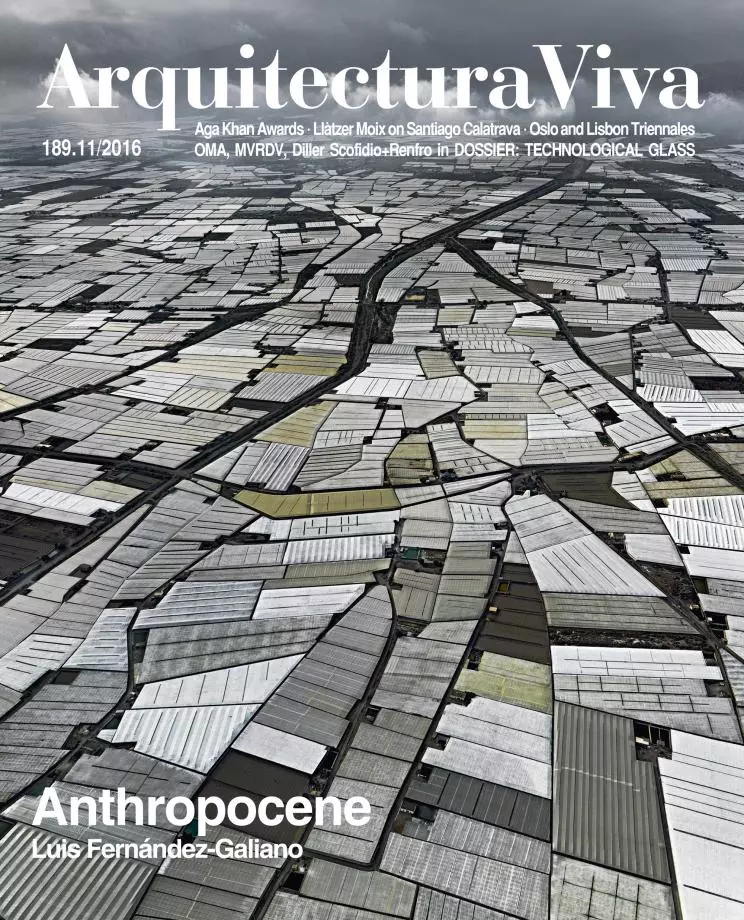
Science tends to reward not the brave nor the powerful, but those who use their reason, putting the latter on pedestals, relegating the former to oblivion; an arbitrary scheme perfectly played out in the case of two 19th-century giants, Charles Darwin and Alexander von Humboldt. An admirer of Humboldt, whom he considered his master, Darwin lived a withdrawn, controversial life, but is now the sacred cow of biology, while Humboldt, the most famous scientist of his century, appears today only in manuals of environmental history.
Righting this injustice is the mission of The Invention of Nature: The Adventures of Alexander von Humboldt, the Lost Hero of Science, written with the rigor of the finest monographs and the flow of a good novel, as yet the best attempt to rescue from oblivion the polymath born in Berlin in 1769. Humboldt has been studied in the context of renewed interest in German Romanticism, and recent years have seen the publication of books on him, such as Die Brüder Humboldt (2009) by Manfred Geiger, Humboldt’s Cosmos (2004) by Gerrad Helferich, or the catalog of the exhibition ‘Alexander von Humboldt: A New View of the World,’ which showed in Madrid in 2005; works to which we can add the 2009 reedition of his masterwork, Kosmos, and the 2011 printing of its Spanish translation. So it cannot be said that Humboldt is unknown, nor that the author has something new of importance to tell of his life and work. Nevertheless, this does not diminish the merit of a book whose main strength is a capacity to connect the Berlin sage’s ideas to contemporary ecological concerns, tracing a genealogical chain that, starting with Humboldt, stretches on to Thoreau, author of Walden Pond; George Perkins Marsh, precursor of sustainability; Ernst Haeckel, who wrote Kunstformen der Natur; John Muir, instigator of the US network of national parks; and of course Charles Darwin, who came up with the random evolutional mechanisms that would demolish the intellectual foundations of the great edifice constructed by Humboldt.
This web of ideas gets spun as the author weaves the story of the Prussian’s life, from his years as inspector of mines to his state funeral in 1859 via his relationship with Goethe – who inculcated in him the notion of nature as a self-organized whole – and the travels from 1799 to 1804 that brought him to Los Llanos, the Orinoco, the Andes, Mexico, Cuba, and the newborn United States, where he struck a rapport with Thomas Jefferson. The author also recounts Humboldt’s return to Berlin and Paris – where he became a foe of Napoleon and a friend of Simón Bolívar – and episodes like the trip to the Siberian steppes or the writing of Essai sur la Géographie des Plantes or Kosmos, an encyclopedia of a universal knowledge that already then was impossible. It’s an illustration in the book, of the flora of Mount Chimborazo placed in ecosystems varying with height, that best explains the current relevance of Humboldt, for whom nature was an extremely vulnerable organism that mankind could alter irreversibly. May the reader delve into this thrilling and disturbing voyage to the roots of the Anthropocene.






